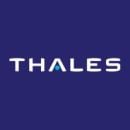Long considered fixtures of a fantastical future, autonomous smart vehicles are now a booming sector packed with companies vying for a piece of the self-driving pie. Operating at the intersection of automotive and IoT, so-called “autotech” innovators — companies like Uber and Tesla — are creating the next wave of intelligent vehicles while attempting to better address a major issue: automotive cybersecurity.
After Wired ran a story in 2015 showing just how easy it was for a couple of legal hackers to infiltrate a Jeep’s software, makers of smart cars began taking automotive cybersecurity seriously. The jarring revelations, which included remotely seizing control of the vehicle as it cruised at 70 miles per hour, resulted in Chrysler recalling 1.4 million cars.
Automotive Cybersecurity
As GM CEO Mary Barra put it a couple of years later, protecting the autotech industry from cyber attacks is no less than “a matter of public safety.” While the 2015 attack aimed to reveal major software flaws, future attacks may well be more malicious in nature. Besides causing potentially fatal collisions, nefarious hackers can also steal personal information like banking and social security numbers.
10 Automotive Cybersecurity Companies to Know
Location: Plymouth, Michigan
Aptiv develops software and computing platforms for self-driving vehicles. The company’s cybersecurity tools protect everything from a car's infotainment system to its wiring.
Aptiv’s self-driving cars were the first to be tested in Singapore and are slated to be fully implemented there by 2022. In collaboration with the ride-hailing service Lyft, Aptiv has already provided more than 100,000 robotaxi rides to passengers in Las Vegas and plans to expand its service within the next two years.
Location: Santa Clara, California
NVIDIA uses AI-powered data processors and chips to operate and protect self-driving cars. The company’s software and cloud-based technologies help autonomous vehicles securely learn and relay driving data.
The NVIDIA deep learning systems have been used by Tesla, Mercedes-Benz, Audi, Toyota, Volkswagen and more to power and protect self-driving vehicles.
Location: Seattle, Washington
Centri makes cybersecurity solutions for IoT-enabled devices in autotech. The Centri IoTAS installs on chips and mobile apps to protect automobile sensors as well as the data that helps cars learn important driver navigation preferences like optimal routes and addresses.
The IoTAS platform requires no internet connection to protect IoT-enabled autotech devices. Instead, it connects to all trusted devices with identity management technology that requires around 40 percent less bandwidth than BLE and TLS.
Location: San Mateo, California
Dellfer is an automotive cybersecurity startup focusing on coding for autotech software. The company’s embedded code helps IoT-enabled cars battle cyber attacks throughout a car’s system. No Internet connection is needed to update critical patches. Instead, the company deploys code execution paths at runtime for security enforcement.
Dellfer partnered with DENSO, the world’s second-largest mobility provider, to help install Dellfer’s IoT cybersecurity tools in a wider range of vehicles.
Location: Tel Aviv, Israel
Argus provides commercial smart vehicles with anti-cyber attack tools like connectivity and in-car network protection that safeguard everything from a vehicle's infotainment center to the communication networks that run between its software and hardware.
Continental, the automotive parts manufacturing company, now integrates Argus’ cybersecurity solutions into all of its connected vehicle electronics.
Location: Ramla, Israel
GuardKnox creates coding architecture for autonomous cars that operates everything from the general vehicle systems (including sensors) to tools that enhance a car’s user experience (infotainment systems, center consoles and more).
Porsche enlisted GuardKnox to improve cybersecurity in its new line of vehicles. The German carmaker says the new technology will protect against hacking attacks and act as a foundation for “real-time customization of the vehicle.”
Location: Stamford, Connecticut
Harman partnered with IBM to develop the Harman SHIELD, which protects key entry points of a car’s network from hackers. In addition, it continuously performs a threat analysis to determine which points are most vulnerable at any given moment.
Harman revealed the Ignite 3.0, an automotive-based assistant for cars, at the 2019 CES conference in Las Vegas. The technology is backed by the company’s SHIELD cybersecurity infrastructure.
Location: Sunnyvale, California
Intertrust makes products that help personalize drivers’ cybersecurity needs and overall experience. Some of the company’s products include tools that protect a vehicle’s infotainment center, prevent unauthorized entry and stop the gathering of personal data.
One of Intertrust’s main software products, whiteCryption, speeds up and safeguards content delivery to drivers. Another tool, Personagraph, encrypts a driver's personal data.
Location: Los Angeles, California
Britive is a cloud-native security software offering API-based integrations and access administration capabilities for applications. Its software is used for securing cloud data and managing user authorization for businesses across multiple industries, including automotive.
In a 2021 Britive blog post, it noted automotive company Toyota was able to shorten the set-up of user authorization and role-based action control privileges for Toyota user accounts from three days to 30 seconds using Britive platform technology.
Location: Fully Remote
Thales provides electrical system engineering services for IoT hardware, software, devices and vehicles. Its services within the transportation and automotive industries operate with an emphasis on cybersecurity and data regulation compliance.
In 2021, Thales announced a partnership with Gireve, a company created to further connect electric mobility operators in Europe. Collaboratively creating the “Plug & Charge” system, this project allows drivers to charge their electric vehicle at any participating compatible charging station, and be automatically billed through a secure card-free transaction.
Location: Detroit, Michigan
General Motors is a multinational company focused on automotive manufacturing and innovation. In addition to designing and engineering vehicle hardware, GM is developing software for connected driving experiences. The company implements cybersecurity measures to protect these systems and ensure customer data is safeguarded against breaches. It also uses ethical hacking teams to proactively identify vulnerabilities before they can be exploited.














